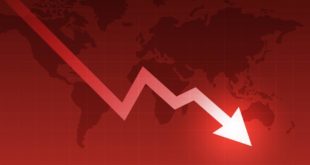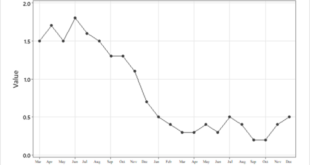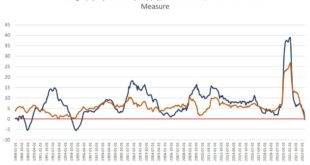After more than $20 trillion in stimulus plans since 2020, the economy is going into stagnation with elevated inflation. Global governments announced more than $12 trillion in stimulus measures in 2020 alone, and central banks bloated their balance sheet by $8 trillion. The result was disappointing and with long-lasting negative effects. Weak recovery, record debt, and elevated inflation. Of course, governments all over the world blamed the Ukraine invasion on the...
Read More »Central Bankers Are Poor Archers: The Problems and Failures of Inflation Targeting and Price Stability
The famous quote, “Insanity is doing the same thing over and over again and expecting different results,” is usually attributed to Albert Einstein. While intended as a parable for quantum insanity, such a quote could equally be a parable for inflation policy. With the Bank of England and the Federal Reserve seeking to maintain target rates of 2 percent, the UK inflation rate has only fallen to 10.7 percent from 11.1 percent. Considering inflation is still...
Read More »Ferdinando Galiani, an Italian Precursor to the Austrians
[From the Austrian Economics Newsletter, Spring 1987] The Austrian School of economics did not develop out of thin air. It built upon the work of a number of other economists and philosophers going back as far as Aristotle. Among the precursors of the Austrian School were a number of Spanish and Italian scholastic economists. Several early Italian economists influenced the development of continental European economic thought in the centuries before Carl Menger. Gian...
Read More »Money-Supply Growth Turns Negative for First Time in 33 Years
Money supply growth fell again in November, and this time it turned negative for the first time in 33 years. November’s drop continues a steep downward trend from the unprecedented highs experienced during much of the past two years. During the thirteen months between April 2020 and April 2021, money supply growth in the United States often climbed above 35 percent year over year, well above even the “high” levels experienced from 2009 to 2013. Since then, the money...
Read More »Paradise Valley, Montana: A Study in Free Market Land Conservation
I first became aware of the Property and Environment Research Center (PERC) after moving to Montana and was immediately intrigued by their work. The more I dug into PERC’s research, the more I realized they aligned with my worldview of free market conservation. The CEO of PERC, Brian Yablonski, graciously met with me to discuss PERC’s initiatives. Even after two hours, we had barely touched the surface of PERC’s free-market, conservation initiatives. Brian caught my...
Read More »The Friction Ahead in 2023
Introduction: Division, friction and polarization have been on the rise in the West for at least a decade, but the escalation we saw during the “covid years” was especially worrying. Over the last year, this “worry” has become a truly pressing concern, even a real emergency one might argue, as inflationary pressures and an actual war were added to the mix of political and social tensions. Going into 2023, there are many reasons for responsible investors and for...
Read More »Defining a Good: The Intersection of St. Thomas Aquinas and Carl Menger
While the average person thinks economics begins with Adam Smith and his Wealth of Nations, readers of the Mises Wire know that the story goes back much further than that. Members of the Austrian school commonly describe their earliest intellectual predecessors, the late Scholastics, as “proto-Austrians.” In Jesús Huerta de Soto’s chapter on Juan de Mariana in 15 Great Austrian Economists, Huerta de Soto writes of ten major contributions to what would go on to be...
Read More »Historical Christianity as a Liberating Force in China
The Chinese Community Party's crackdown in Christian churches reflects the perceived antiauthoritarian nature of Christianity and the party's fear of a competing alternative worldview. Original Article: "Historical Christianity as a Liberating Force in China" This Audio Mises Wire is generously sponsored by Christopher Condon. [embedded content]...
Read More »How Marxism Abuses Ethics and Science to Deceive Its Followers
While socialists posit socialism as a humane and ethical system, it is anything but that. Mises understood its brutality long before socialism gripped the world. Original Article: "How Marxism Abuses Ethics and Science to Deceive Its Followers" This Audio Mises Wire is generously sponsored by Christopher Condon. [embedded content]...
Read More »Student Debt: It Is and Has Been a Personal Choice
Progressives demanding that the government forgive student debt forget that student loans were made voluntarily by students that promised to pay back what they owe. Original Article: "Student Debt: It Is and Has Been a Personal Choice" This Audio Mises Wire is generously sponsored by Christopher Condon. [embedded content]...
Read More » Swiss Economicblogs.org
Swiss Economicblogs.org







